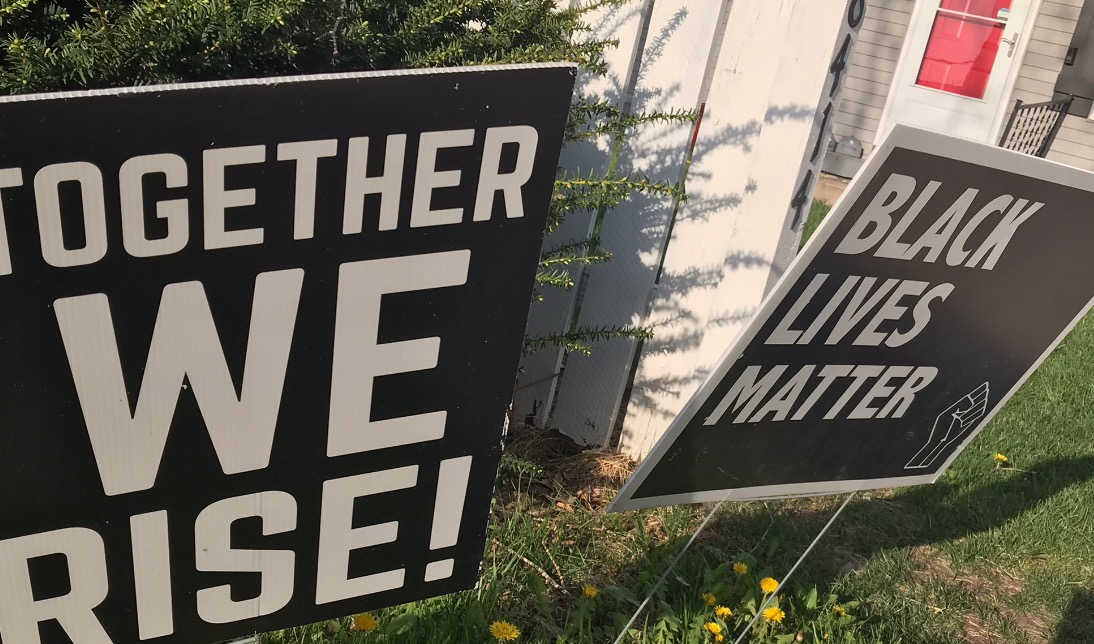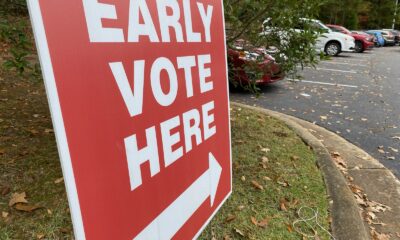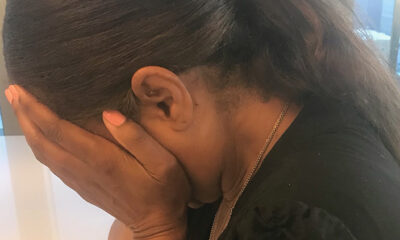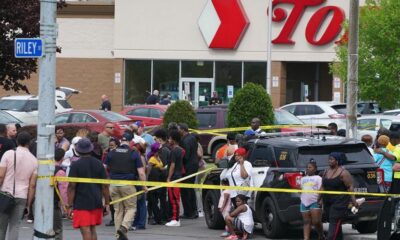Featured
Black And Proud: It’s More Than A Song As New Study Finds African Americans Share Strong Ties

America is considered the world’s melting pot – an ethnic stew made rich by its diverse cultures — but new research shows that for Black Americans, racial identity is very important and an integral part of who they are.
According to the Pew Research Center which is a non-partisan think tank, “significant majorities” of Black Americans say race is very important or extremely important to them. The study pegged the number at slightly more than 75%. And to underscore the cultural attachment of that majority, the relevance of race transcended economics, education, geography and other demographics.
“This doesn’t surprise me as a Black sociologist who has studied Black culture,” said Veronica Newton, Ph.D., and professor at Georgia State University in Atlanta. “To me it made perfect sense because we all have a collective Blackness – a collective experience because of the society that we live in. Our experiences are similar and different … but we all experience marginalization.”
Newton used W.E.B. Du Bois’s phrase, “double consciousness,” to explain the ability to “see who we are as Blacks and who we are as Americans.”
She added, “Those things for Black folks will never truly be allowed to mesh because our Blackness doesn’t let us fully pursue those civil liberties that are supposed to be for everyone.”
Brothers And Sisters
For many, James Brown said it best with the classic, “I’m Black And I’m Proud.” Songwriters, authors, poets and Black Americans dating back centuries have preached the empowering message of racial pride. And despite, or because of the uptick in racial hatred during the last decade, there is more recognition of the unique resilience of Black Americans. You hear it in “Black Lives Matter” as a rallying cry when there is injustice, see it on social media in multi-generational TikToks, and feel it when one excels before a Senate committee and all gather around to celebrate.
“Culturally, we have had to find other ways to make connections with each other without even speaking,” Newton shared. “We can communicate in nonverbal ways – the head nod to people you don’t even know – is one example.”
The Pew survey found the sense of connectedness among Black Americans is strong with 52% saying “everything or most things that happen to Black people in the United States affect what happens in their own lives.” Another 30% responded that “some things that happen nationally to Black people will have a personal impact.” The study found 43% think “all of most things that happen to Black people in their local community affect what happens in their own lives, while another 35% say only some things in their lives are affected by these events.”
Newton, who grew up in the Midwest, asked, “Have you ever been in a [situation] where you look at the nearest Black person, and you all lock eyes, saying, ‘I’m going to look to you if something pops off?’ That’s nothing we were taught … that’s a similar experience. And that collective consciousness probably developed as a survival mechanism.”
The Children Are Aware
Understanding the significance of being Black begins in early childhood.
Kenneth Clark and Mamie Phipps Clark, husband and wife psychologists who conducted the “Doll Tests” for the NAACP during Brown vs. Board of Education case which showed Black children preferring white dolls and assigning positive characteristics to them, determined children are aware of their racial identity by the age of three. The Clarks said children reflect and internalize the views society holds of them.
And Newton cited studies indicating by the age of five children already know race is factors into the way people are treated.
Recently Newton and some of her graduate students discussed the ways children observe and learn by “mimicking others.” For example, she said, “As a young child, we learn to speak to our elders, to respect them … just learning those cultural cues that start in our family.
She extended the learning curve to racism.
“They may not know it’s race, but they know this person is different, and they continue to witness that – whether a child is being called on more,” she said. “Those are patterns children notice. They may not have the language, but they’re witnessing being silenced. They are very much aware of who’s being praised and who is not. They know people are being put in categories … and it’s internalized.”
Viral videos showing Black Americans harassed for simply moving through the day engaging in routine tasks are powerful illustrations of mistreatment and are demoralizing for children and adults.
“Some parents counteract that by saying, ‘You are beautiful,’” Newton mentioned. “That’s part of Black power – praising Blackness. Our oppression in some ways connects us, but we also have our practices of liberating our Blackness with messages of Black power. We find ways to pour into each other by celebrating our Blackness.”
Those messages inform our self-identity and that of our entire community.

-

 Featured10 months ago
Featured10 months agoCalifornia Is the First State to Create A Public Alert for Missing Black Youth
-

 Featured9 months ago
Featured9 months agoAfrican American Leaders Stay the Course Amid Calls for President Biden To Bow Out of Race
-

 Featured10 months ago
Featured10 months agoThe Debate Fallout Lands on Both Candidates
-

 Featured9 months ago
Featured9 months agoPresident Joe Biden Decides to Withdraw from the Presidential Race
-

 Featured9 months ago
Featured9 months agoIn One of His Final Speeches as President, Biden Says It’s Time for ‘Fresh Voices’
-

 Featured9 months ago
Featured9 months agoPresident Joe Biden Describes Shooting of Donald Trump As ‘Sick’









